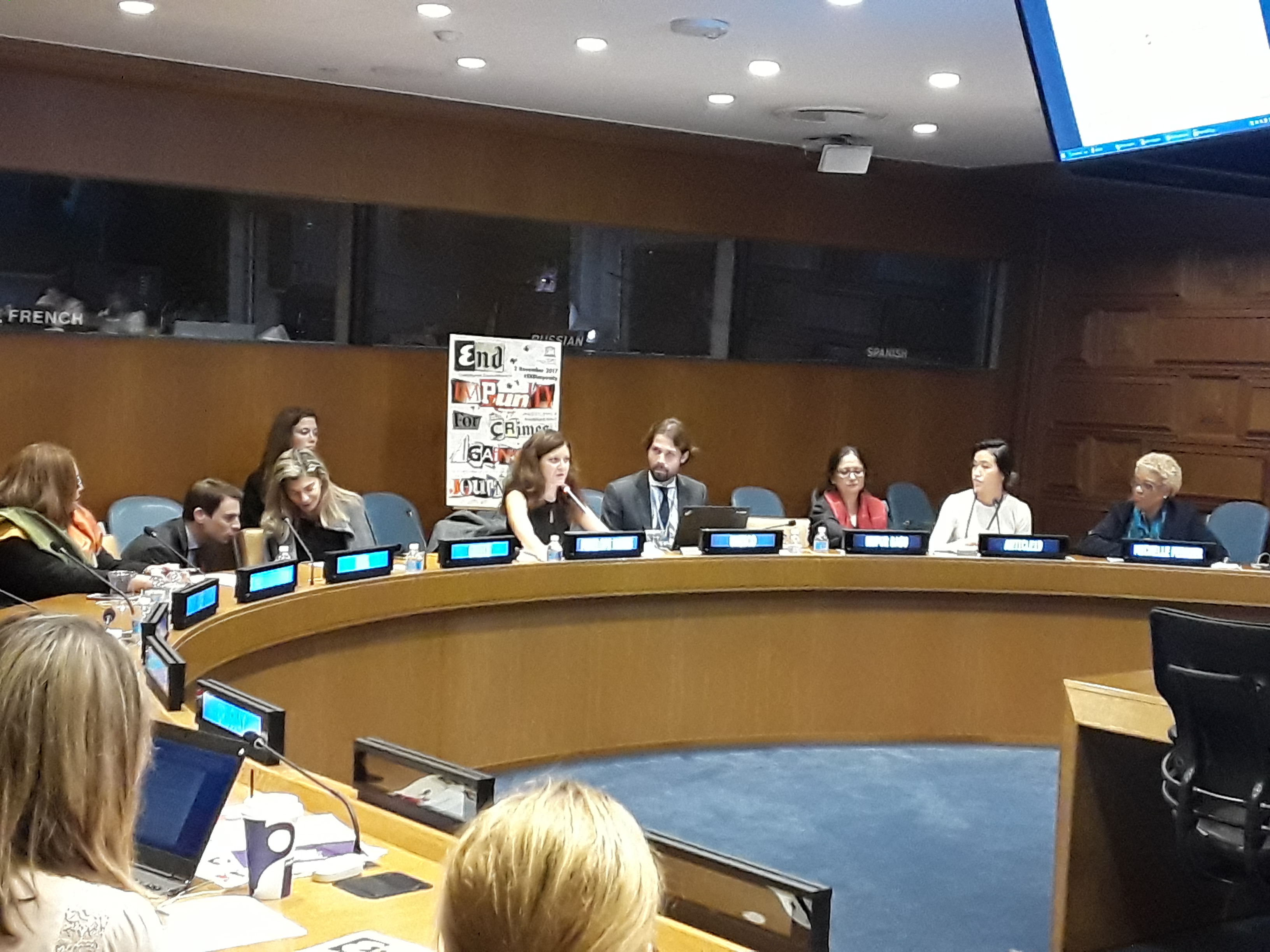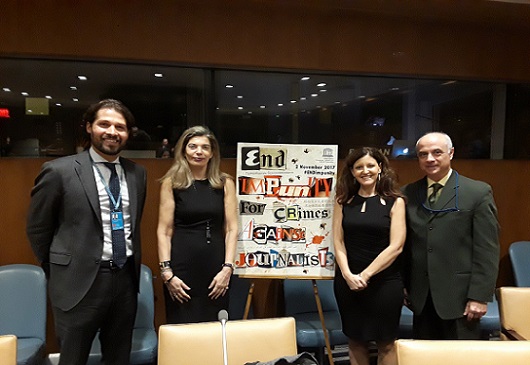 News
News Address by Permanent representative Ambassador Theofili on the occation of the International Day to End Impunity for Crimes against Journalists.
Address by Permanent representative Ambassador Theofili on the occation of the International Day to End Impunity for Crimes against Journalists.Address by Permanent representative Ambassador Theofili on the occation of the International Day to End Impunity for Crimes against Journalists.
Distinguished Delegates,
Ladies and Gentlemen,
On the fourth occasion marking November 2nd the International Day to End Impunity for Crimes against Journalists as proclaimed by the relevant GA resolution in 2013, it is my honour to welcome you to this Interactive Panel Discussion, which we are hosting together with UNESCO and the Group of Friends for the protection of journalists. Our objective today is to address the issue of gender, safety and impunity, driven, inter alia, by the relevant Secretary General’s Report that focuses on the safety of women journalists.
Please allow me to make this statement on behalf of the Group of Friends for the protection of journalists. Over the past few years, there has been a horrible increase in the accounts of gender-based and often sexual violence, discrimination and harassment, online or offline, all of which are factors that either deter women from joining the profession or push them to leave it in the interest of their safety and personal health. In broader terms, these violations against women journalists not only deprive them of their personal rights, but also deprive society of women’s views and voices in the media, perpetrate ideals of social inequality and thus undermine the foundational pillars of democracy and freedom of expression.
Despite the strides States have made with regards to this issue, such as the establishment of constitutional and legislative provisions, the creation of protection units for women journalists, the launch of awareness-raising initiatives and the strengthening of certain accountability mechanisms for perpetrators, varying forms of violence against women journalists still remain a ubiquitous problem.
The tragic death of Ms. Caruana Galizia, a successful investigative journalist from Malta in a car explosion two weeks ago, is only one of the myriad examples of violence and harassment that women journalists face around the globe on a regular basis. It also serves as proof of how far we still are from achieving our goal of ensuring the safety and protection of journalists and of putting an end to impunity.
To this end, during the ongoing 72nd Session of the General Assembly Greece along with the other main sponsors (Argentina, Austria, Costa Rica, France and Tunisia) have once again submitted the Third Committee Resolution on “The safety of journalists and the issue of impunity”, with the aim of reinforcing General Assembly’s commitment to the protection of journalists. Moreover, this year’s resolution takes a more gender-sensitive approach and thus urges states to take action towards the protection of women journalists against, among others, gender-based violence, harassment and discrimination.
In this regard, the Group of Friends, consisting of 19 countries from all regions of the world, continues to explore all avenues for better implementation of the existing UN framework in order to eliminate violence against journalists and effectively put an end to the issue of impunity. Furthermore, the Group of Friends welcomes the announcement made by the Secretary General earlier today about the mobilization of a network of focal points from throughout the UN system with the aim of proposing specific steps in order to intensify efforts of enhancing the safety of journalists and media workers.
Distinguished delegates,
Ladies and Gentlemen,
On this International Day to End Impunity for Crimes Against Journalists, let us use this opportunity to raise awareness on the grave violations of journalists’ rights, take special note of the countless gender-based acts of violence, harassment and intimidation women journalists face and learn from examples of best practices of states and civil society in the promotion and protection of journalists’ rights through a gender-sensitive approach and the tackling of the issue of impunity.
Every instance of gender-based violence, harassment and discrimination against a woman journalist signifies a step backwards in the enjoyment and realization of freedom of expression, democracy, universal human rights and gender equality and distances us further from the achievement of the 2030 Sustainable Development Goals.
Thank you very much for your attention.



.jpg)













